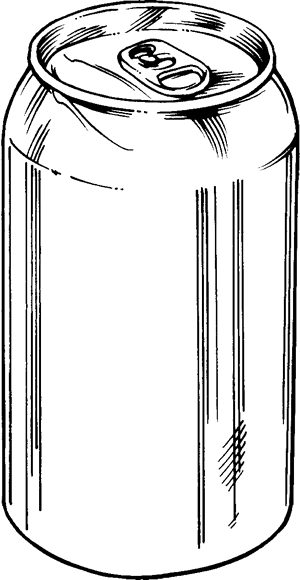Becoming a Mechanical Engineer: Educational Pathways and Requirements
Educational requirements for become a mechanical engineer
Mechanical engineering stand as one of the broadest and virtually versatile engineering disciplines. These professionals design, develop, build, and test mechanical devices range from small components to large machinery and systems. The path to become a qualified mechanical engineer require specific education, skill development, and credentials.
High school preparation
The journey to become a mechanical engineer begin intimately before college. Students interested in this career should focus on build a strong foundation in several key areas during high school:
-
Mathematics:
Advanced coursework in algebra, geometry, trigonometry, and calculus provide the fundamental tools engineers use day by day. -
Physics:
Understand mechanics, thermodynamics, and other physics principles is essential for future engineering studies. -
Chemistry:
Knowledge of material properties and chemical reactions help engineers select appropriate materials for various applications. -
Computer science:
Early exposure to programming and computer aid design (cad )software give students a head start on critical technical skills. -
English and communication:
Engineers must efficaciously communicate complex ideas to both technical and non-technical audiences.
Participate in stem focus extracurricular activities such as robotics clubs, science fairs, and engineering competitions can provide valuable hands-on experience and demonstrate genuine interest in the field when apply to engineering programs.
Bachelor’s degree in mechanical engineering
A bachelor’s degree in mechanical engineering or mechanical engineering technology serve as the minimum educational requirement for most entry level mechanical engineering positions. These programs typically take four years to complete at accredited universities.
Abet accreditation
When select an engineering program, accreditation by the accreditation board for engineering and technology (abet )is crucial. Abet accreditation ensure that programs meet quality standards recognize by the engineering profession. Most employers require degrees from abet accredit programs, and licensing boards typically solely accept candidates with these credentials.
Core curriculum
Mechanical engineering undergraduate programs typically include coursework in:
-
Mathematics:
Calculus, differential equations, and linear algebra -
Engineering mechanics:
Statics, dynamics, and mechanics of materials -
Thermodynamics and heat transfer:
Study of energy and its transformation -
Materials science:
Understand material properties and selection -
Fluid mechanics:
Behavior of liquids and gases -
Machine design:
Principles of design mechanical components and systems -
Manufacturing processes:
Methods used to create engineer products -
Control systems:
Theory and application of automatic control -
Computer aided design (cad )
Use software to create precise technical drawings -
Electrical engineering fundamentals:
Basic principles of electrical systems
Laboratory work and projects
Beyond classroom learning, mechanical engineering programs emphasize hands-on experience through laboratory courses and design projects. These practical components allow students to apply theoretical knowledge to real world problems and develop crucial problem solve skills. Many programs culminate in a senior capstone project where students design, build, and test a mechanical system or device.
Internships and co op programs
Nearly successful engineering students complete at least one internship or participate in cooperative education programs during their undergraduate studies. These experiences provide valuable workplace exposure, help students build professional networks, and importantly enhance employability after graduation. Many companies use internships as a pipeline for identify and recruit full-time engineers.
Advanced degrees in mechanical engineering
While a bachelor’s degree qualify graduates for entry level positions, advanced degrees open doors to specialized roles, research opportunities, and leadership positions.
Master’s degree
A master of science (m.s. )in mechanical engineering typically require 1 2 years of additional study beyond the bachelor’s degree. These programs allow for specialization in areas such as:
- Robotics and automation
- Advanced manufacturing
- Aerospace engineering
- Biomechanics
- Energy systems
- Computational mechanics
Master’s programs may be research base (require a thesis )or coursework base ( (quire additional classes and perchance a capstone project ).)ome universities offer accelerated programs that allow students to earn both bachelor’s and master’s degrees in five years alternatively of the traditional six.
Doctoral degree
A doctor of philosophy (pPh.D.)in mechanical engineering prepare students for careers in advanced research, academia, or specialized industry positions. These programs typically take 4 6 years beyond a bachelor’s degree and require original research culminate in a dissertation. PhPh.D.olders frequently lead research teams, teach at universities, or work on cut edge technological development.
Professional licensing
While not require for all mechanical engineering positions, professional licensing as a professional engineer (pPE)is necessary for engineers who offer services straight to the public or work on projects affect public safety. The licensing process include:
Fundamentals of engineering (fFe)exam
Most engineering students take the Fe exam near graduation from their bachelor’s program. Pass this exam earn the designation of engineer in training (eat))r engineering intern ( e()a)
Professional experience
After pass the Fe exam, engineers must gain relevant work experience under the supervision of license PES. This requirement typically spans four years.
Principles and practice of engineering (pPE)exam
After complete the requirement work experience, engineers can take PEe pe exam in their specific discipline. Pass this exam grants fPEl pe licensure, allow engineers to sign and seal engineering plans and offer services to the public.
Continuing education
The field of mechanical engineering unendingly evolve with technological advancements. To remain competitive and effective, mechanical engineers must commit to lifelong learning done:
-
Professional development courses:
Specialized training in emerge technologies and methodologies -
Industry certifications:
Credentials in specific software, processes, or specialties -
Professional society membership:
Organizations like the American society of mechanical engineers (asame)provide access to technical publications, network opportunities, and continue education
Many states require license PES to complete continue education credits to maintain their licenses, ensure they stay current with industry standards and practices.
Essential skills beyond formal education
While academic credentials form the foundation of a mechanical engineering career, employers progressively value complementary skills that enhance effectiveness in modern engineering environments:
Technical skills
-
Programming and simulation:
Proficiency in languages like Matlab, python, or c++ for analysis and simulation -
Cad software:
Expertise in industry standard design software such as SolidWorks, AutoCAD, or Katia -
Finite element analysis (ffew)
Ability to perform computer base structural analysis -
Computational fluid dynamics (cCFD)
Skills in modeling and analyze fluid flow
Soft skills
-
Problem-solving:
Systematic approach to identify and resolve engineering challenges -
Communication:
Ability to explain technical concepts to diverse audiences -
Teamwork:
Collaboration with multidisciplinary teams on complex projects -
Project management:
Planning, executing, and complete engineering projects on time and within budget -
Adaptability:
Willingness to learn new technologies and approaches throughout one’s career
Specialized pathways in mechanical engineering
The broad field of mechanical engineering offer various specialized career paths, each potentially require additional or focused education:
Automotive engineering
Engineers focus on vehicle design may pursue specialized courses in automotive systems, powertrain technology, and vehicle dynamics. Some universities offer dedicated automotive engineering programs or concentrations within mechanical engineering.

Source: thecollegemonk.com
Aerospace engineering
While some universities offer separate aerospace engineering degrees, mechanical engineers can specialize in this field through focused coursework in aerodynamics, aircraft structures, and propulsion systems.
Robotics and automation
This grows field combine mechanical engineering with elements of electrical engineering and computer science. Specialized education might include courses in control systems, artificial intelligence, and mechatronics.
Biomedical engineering
Mechanical engineers work on medical devices and systems benefit from supplementary coursework in biology, anatomy, and biomedical materials. Some may pursue dual degrees or specialized certifications in biomedical applications.
International considerations
Engineering qualifications vary moderately by country. Engineers plan to work internationally should research specific requirements in their target regions. Some considerations include:
-
Degree recognition:
Not all countries mechanically recognize foreign engineering degrees -
Professional registration:
Many countries have their own systems for engineering licensure -
International agreements:
Accords like the Washington accord facilitate recognition of engineering qualifications across member countries
Alternative educational pathways
While the traditional four-year bachelor’s degree remain the standard entry point, alternative paths exist:

Source: scholarshipbuddytexas.com
Engineering technology programs
Bachelor of engineering technology (bet )programs typically focus more on practical applications and less on theoretical concepts than traditional engineering degrees. Graduates oftentimes work as engineering technologists, though some positions and licensing opportunities may be limit compare to those with traditional engineering degrees.
Military training
Military service in technical roles can provide valuable engineering experience and education benefits that support afterward academic pursuits in mechanical engineering.
Community college transfer
Many students begin at community colleges to complete prerequisite courses before transfer to four year engineering programs, potentially reduce overall educational costs.
The evolving educational landscape
Engineering education continue to adapt to industry needs and technological developments:
-
Interdisciplinary programs:
Many universities nowadays offer programs that blend mechanical engineering with computer science, materials science, or business -
Sustainability focus:
Grow emphasis on sustainable design and green energy in engineering curricula -
Industry partnerships:
Increase collaboration between universities and industry to ensure graduates possess relevant skills -
Online and hybrid learning:
More flexible educational options, though hands-on laboratory experience remain essential
Conclusion
Become a mechanical engineer require a significant educational investment, begin with strong high school preparation and continue through a bachelor’s degree from an abet accredit program. While this foundation is sufficient for entry level positions, career advancement frequently depend on additional credentials, specialized knowledge, and continuous learning.
The educational path to mechanical engineering offer flexibility in terms of specialization and career objectives. Whether pursue design, analysis, manufacturing, or research roles, aspire mechanical engineers should focus on build both technical expertise and the complementary skills that make for successful engineering practice in today’s collaborative, technology drive environment.
For those passionate about apply scientific principles to solve practical problems, the educational journey to become a mechanical engineer offer a challenging but rewarding path to a versatile and impactful career.



